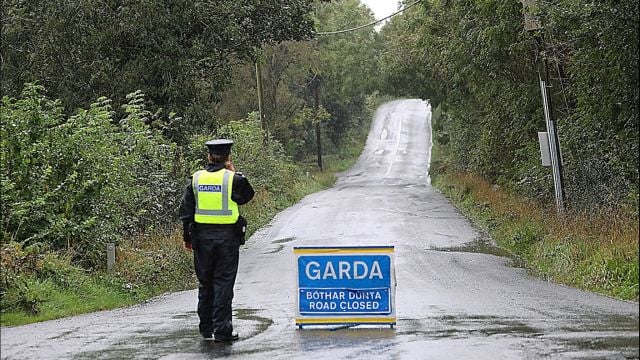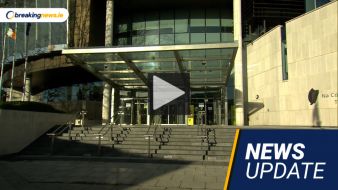Mobile phone data collected by gardaí investigating the abduction and assault of Quinn Industrial Holdings director Kevin Lunney were obtained using invalid search warrants, a lawyer has argued at the Special Criminal Court.
Michael O'Higgins SC, for one of the accused, said there was an "information deficit" in the application for a warrant for phone records relating to his client and that the warrant was executed at the wrong address.
A 40-year-old man who cannot be named by order of the court, Alan O’Brien (40), of Shelmalier Road, East Wall, Dublin 3, Darren Redmond (27), from Caledon Road, East Wall, Dublin 3 and Luke O’Reilly (67), with an address at Mullahoran Lower, Kilcogy, Co Cavan have all pleaded not guilty to false imprisonment and intentionally causing serious harm to Mr Lunney at Drumbrade, Ballinagh, Co Cavan on September 17th, 2019.
Mr Lunney has told the court that he was bundled into the boot of a car near his home and driven to a container where he was threatened and told to resign from QIH. His abductors then cut him with a Stanley knife, stripped him to his boxer shorts, doused him in bleach, broke his leg with two blows of a wooden bat, beat him on the ground, cut his face and scored the letters QIH into his chest. They then left him bloodied, beaten and shivering on a country road at Drumcoghill in Co Cavan where he was discovered by a man driving a tractor.
Phone records
Mr O'Higgins, for the unnamed accused, said that gardai applying for a warrant to seize phone records told a district court judge that a number associated with his client was in contact with a number ending in 2200. The 2200 number has been associated with Cyril McGuinness, also known as 'Dublin Jimmy', now deceased.
The prosecution case is that McGuinness spoke to Luke O'Reilly on the phone while Mr Lunney was being held captive in a trailer on Mr O'Reilly's land. The prosecution alleges that McGuinness told Mr O'Reilly to buy bleach and called him again shortly afterwards to tell him how to pass it on to the three co-accused.
Gardai had focused on Mr O'Reilly early in their investigation because he was seen on CCTV buying bleach at a nearby shop during the time that Mr Lunney had been abducted.
Mr O'Higgins said there was no basis outlined to the district court judge for the garda belief that the 2200 number was involved in the false imprisonment of Mr Lunney. He said the 2200 number had been in contact with ten other numbers on the same day and if gardai were relying on the frequency of contact between that number and the number associated with his client they should have said that to the judge.
Mr O'Higgins said the warrant application went on to state that gardai believed the operation had been planned for some weeks and therefore phone records stretching back to June were sought. He said the basis for the garda belief should have been set out in the warrant but wasn't.
Warrant application
There was nothing on the warrant application, counsel said, to provide reasonable grounds for the judge to believe that the phone data would yield relevant material.
He added: "A garda belief that something happened, is not a basis for a reasonable belief."
He continued: "There is a huge information deficit and, more importantly, the warrant doesn’t contextualise why one person out of eleven persons who contacted the 2200 number might be more connected to this offence than any of the other ten."

Mr O'Higgins went on to say that the judge granted the warrant for a specific address for the mobile phone service provider. When the garda went to collect the mobile phone data she went to an address other than the one stated on the warrant, Mr O'Higgins said.
Counsel will tomorrow go into his objections to gardai using warrants issued under Section 10 of the Criminal Justice (Miscellaenous Provisions) Act 1997 to obtain phone records. The court has heard that following a Supreme Court judgement, gardai can no longer obtain phone records through Garda Crime and Security, which had been the normal procedure.
Mr O'Higgins said using the 1997 Act "strips out all the protections" that were provided under the previous system.
The three other accused are adopting the arguments made by Mr O'Higgins. The trial continues in front of Mr Justice Tony Hunt, Judge Gerard Griffin and Judge David McHugh.







